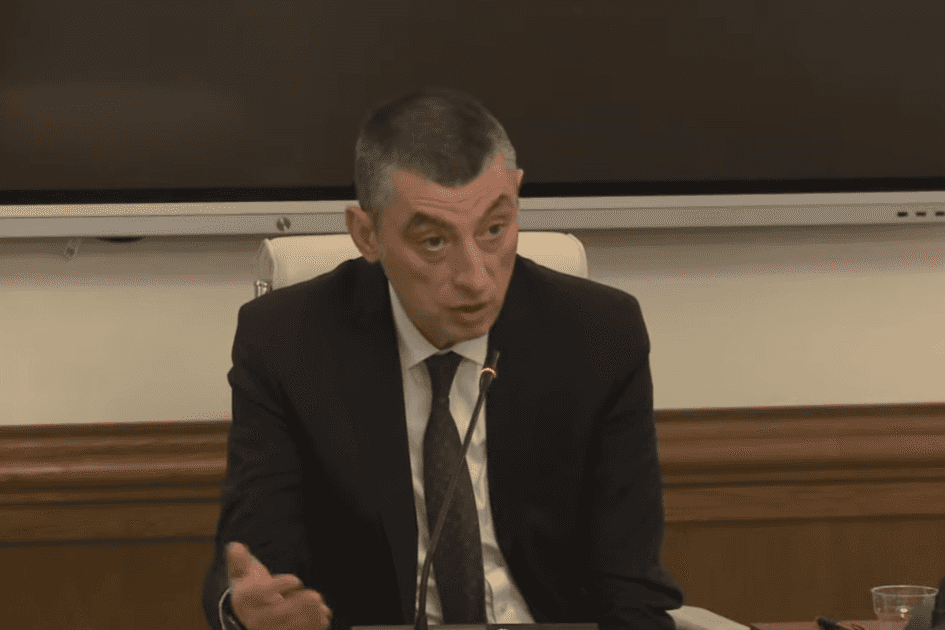Protesters in Tbilisi march to Ivanishvili’s residence to ‘interrupt his sleep’

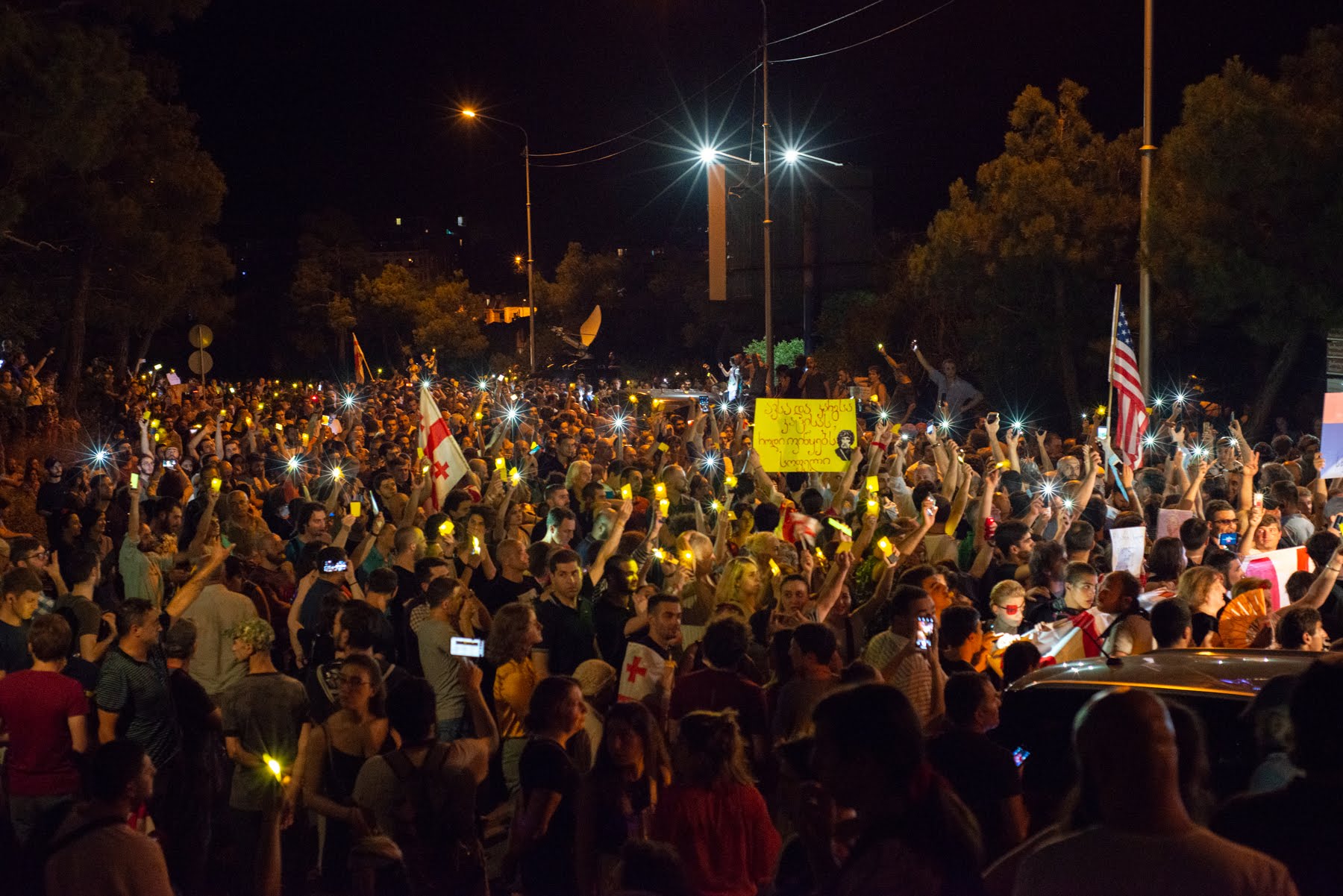
Anti-government protesters have marched from Georgia’s parliament to the home of the chair of the ruling Georgian Dream party, Bidzina Ivanishvili, demanding that Interior Minister Giorgi Gakharia resign.
In the eighth day of protests in Tbilisi, anti-government campaign ‘Shame!’ insisted that only Ivanishvili had the power to make Gakharia go.
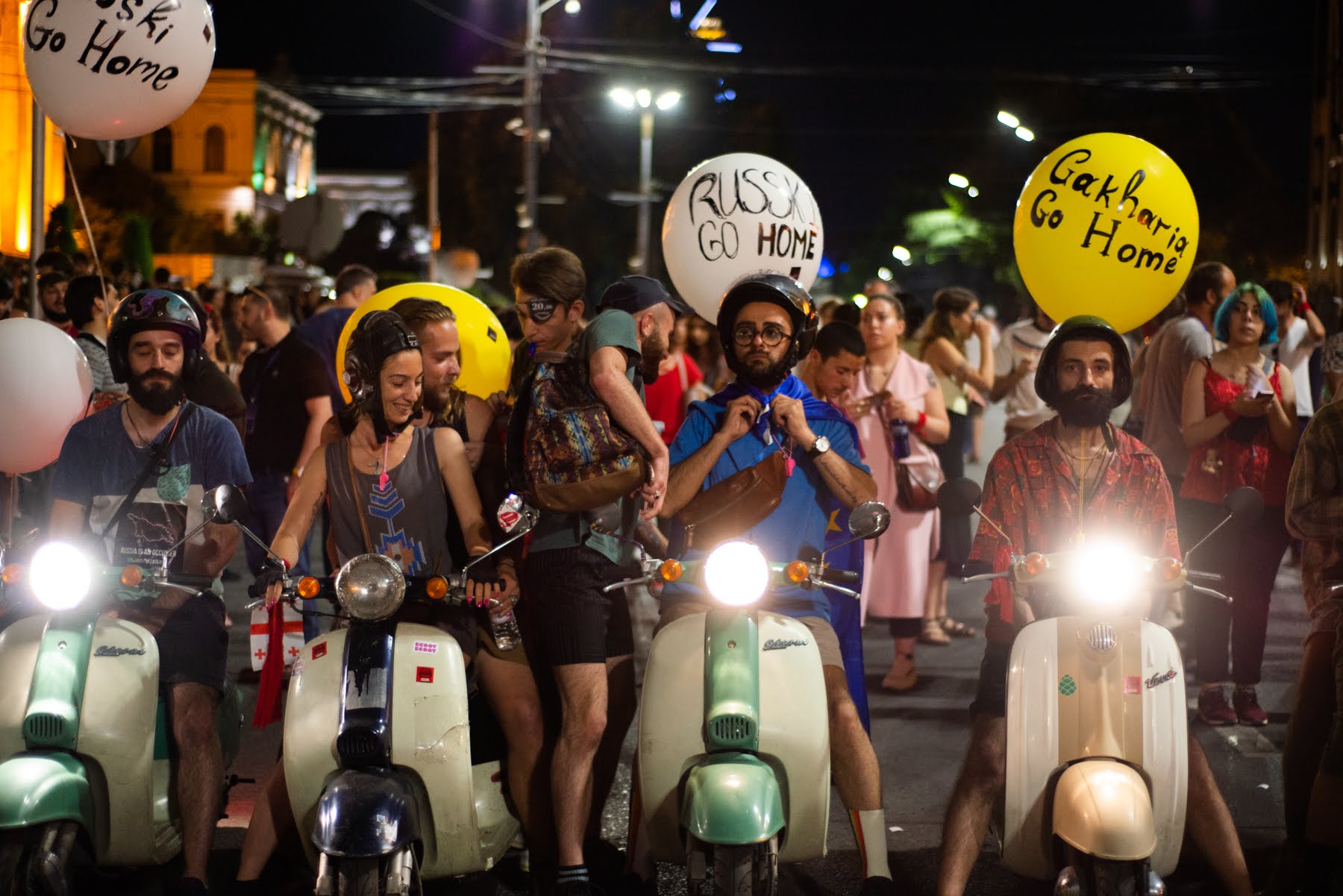
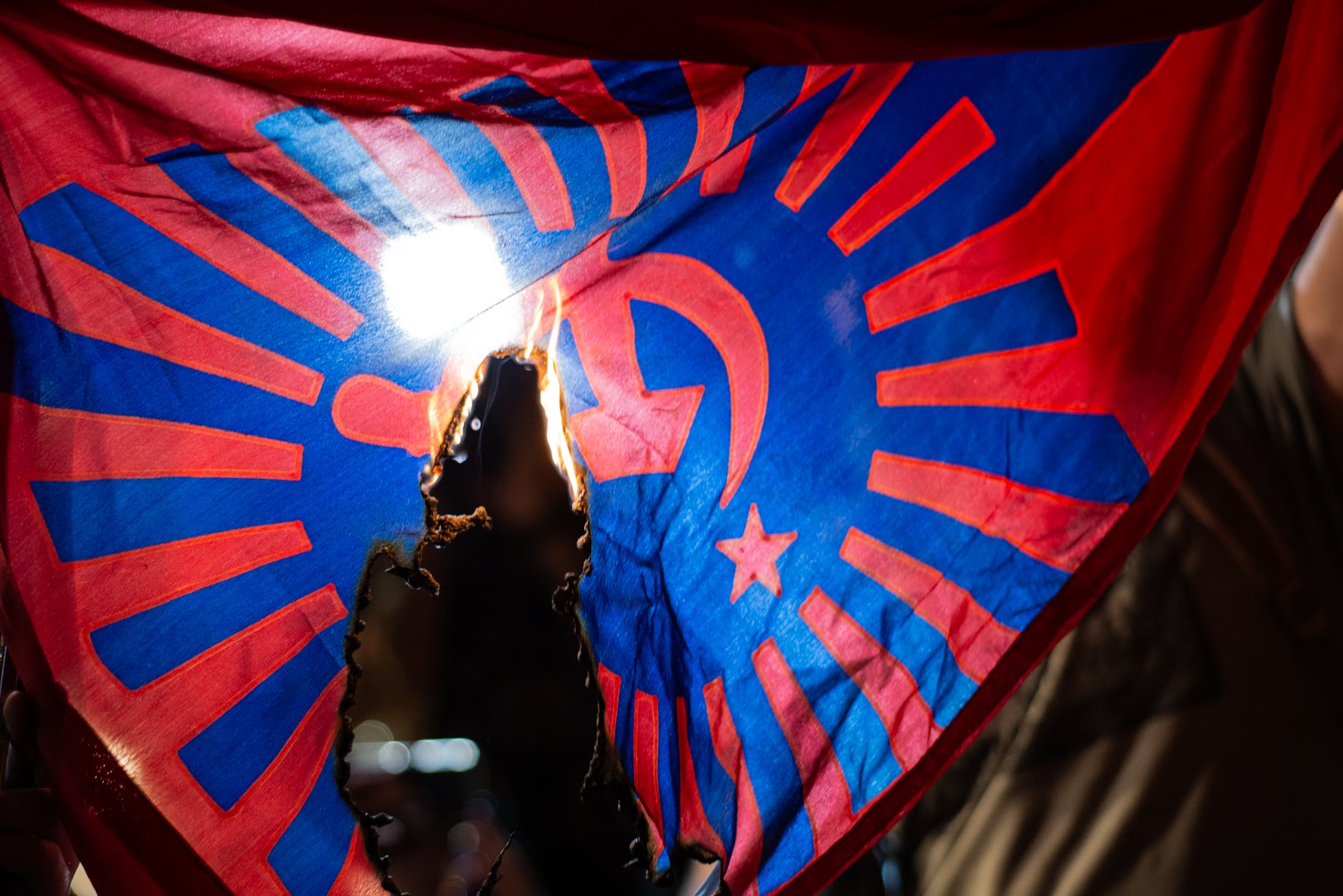
Protests first broke out after parliament invited Russian MP Sergei Gavrilov to speak before the Georgian parliament from the Speaker’s chair on 20 June. Gavrilov was addressing the 26th General Inter-Parliamentary Assembly on Orthodoxy, in parliament’s main plenary hall.
After opposition parties thwarted the meeting by ‘defending’ and occupying the speaker’s chair, the event was cancelled and Gavrilov was escorted out along with other members of the Russian delegation.
As Gavrilov spoke, protesters began to gather outside parliament. Initially overwhelmingly peaceful, in the later hours of 20 June, the protest escalated into clashes with police as hundreds of demonstrators attempted for several hours to break into parliament.
Police responded with tear gas and later with a water cannon, as well as firing rubber bullets indiscriminately into the crowd.
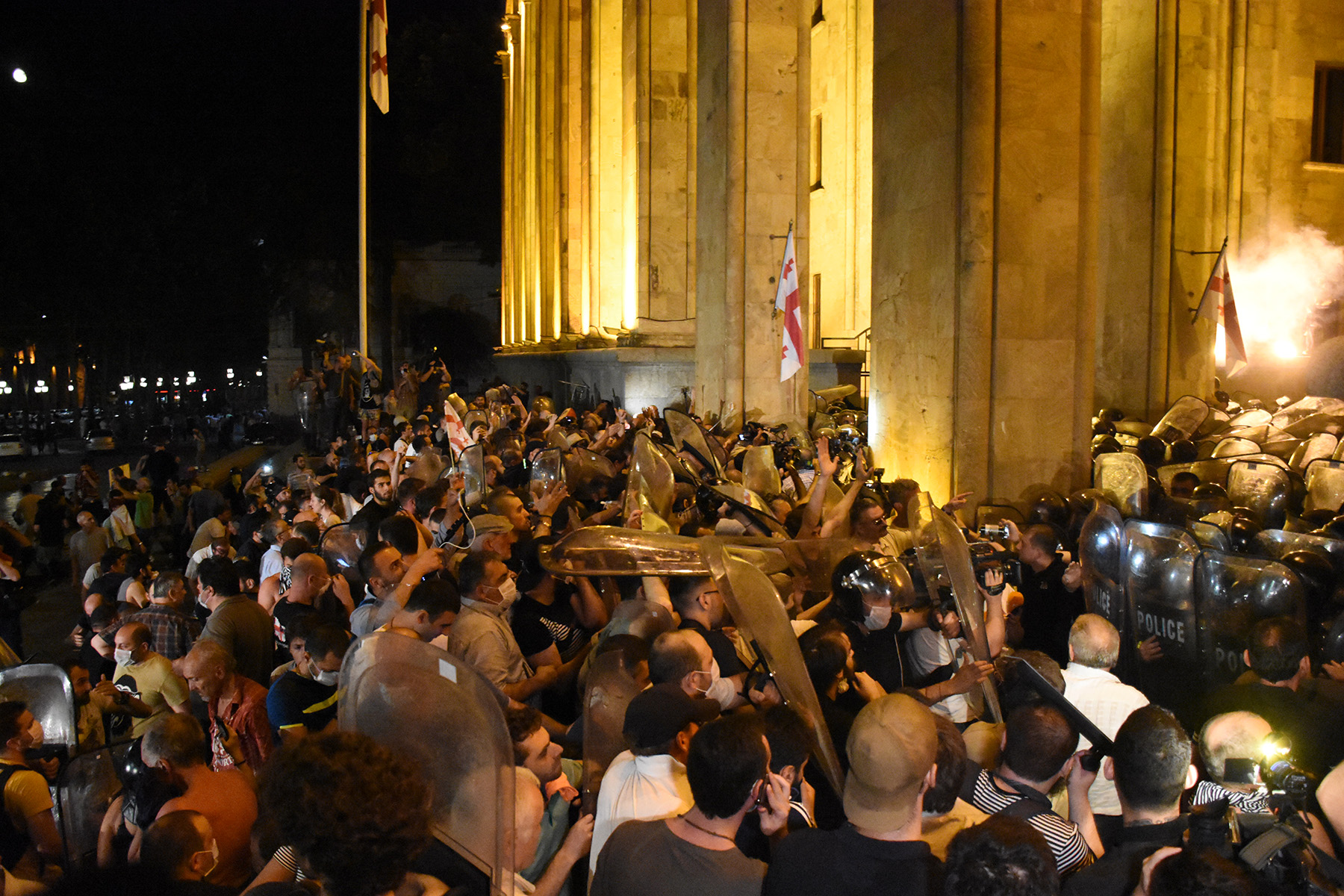
According to the Health Ministry, the clashes resulted in 240 people being hospitalised — including 80 police officers. Two people lost eyesight in one of their eyes while another two ended up in life-threatening condition. One man remains on life support.
Over 35 journalists were also injured, mostly from rubber bullets, including OC Media Co-Director Mari Nikuradze.
Three-hundred-and-five people were detained.
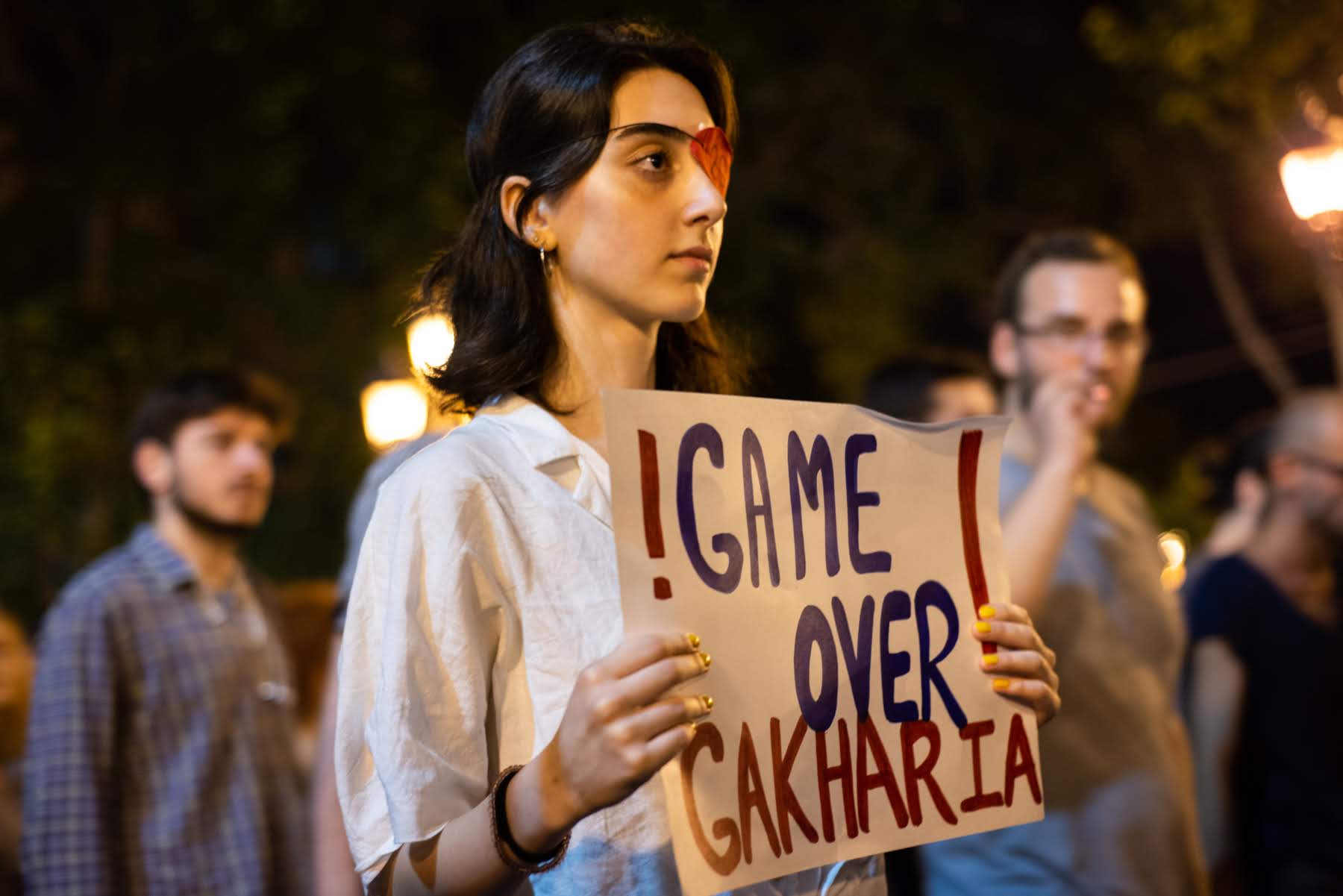
[Read more on OC Media: Thousands clash with police as protesters try to storm Georgian Parliament]
On Thursday, protesters sang Georgia’s national anthem, played the European Union’s anthem, and blew whistles to ‘interrupt the sleep’ of Ivanishvili, who many protesters regard as calling the shots in the Georgian government.
Demonstrators held their hand in the air as a sign of peaceful protest, while others held yellow cards or their phones with a yellow background as a ‘warning’ to Ivanishvili.
Speakers at the protest warned that a ‘red card’ would come in future if their demands were not met, and announced their 9th rally for Friday.
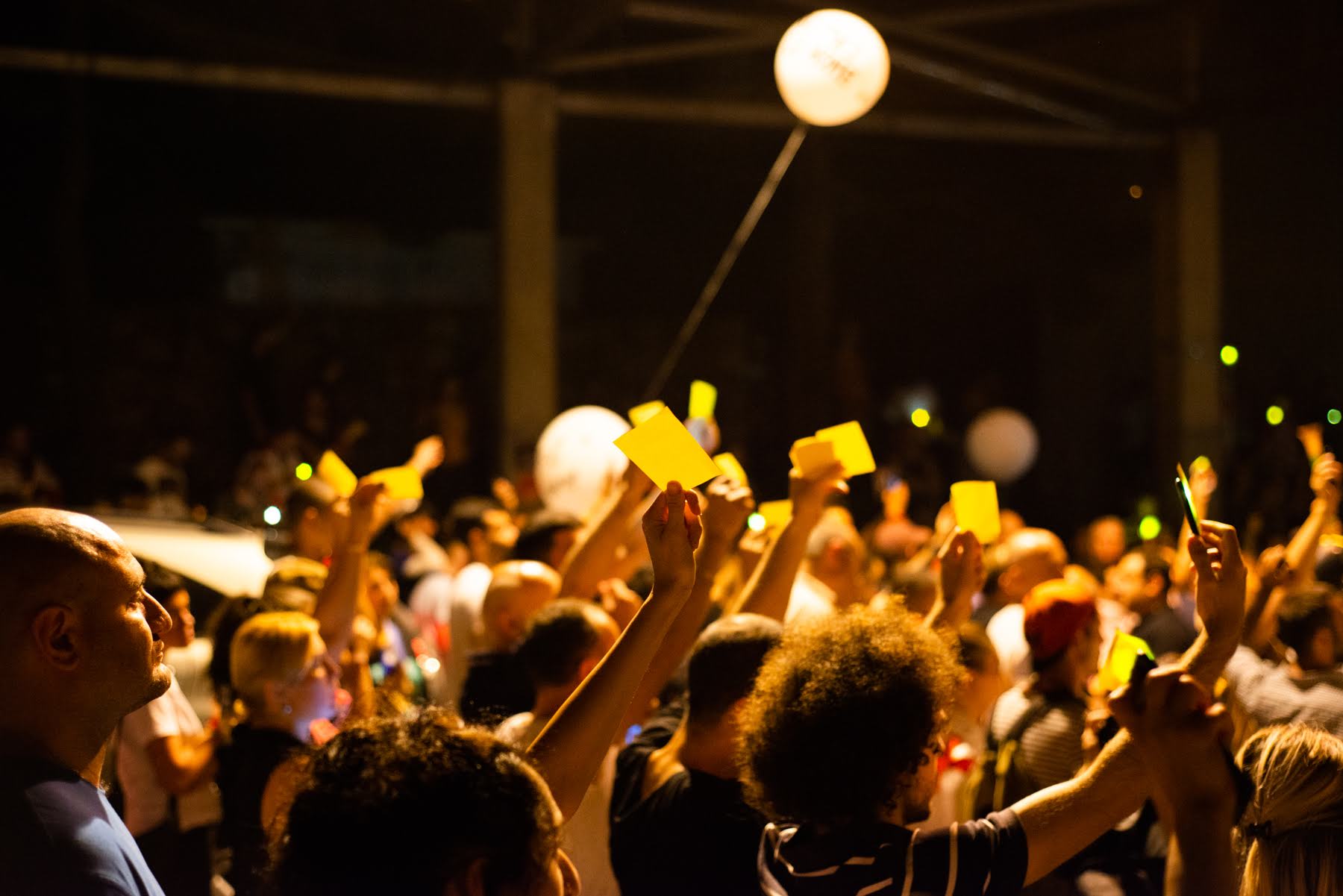
Protest leaders, organised through Facebook group ‘the Society of Freedom Spreaders’ and page ‘For Freedom’, have announced another march from Republic Square to Freedom Square on Saturday.
The government’s response so far
Leaders of the Shame! campaign have so far fallen short of demanding the resignation of the government.
So far the government has fulfilled three of the protesters’ main demands. On 21 June, Parliamentary Chair Irakli Kobakhidze resigned over Gavrilov’s appearence in parliament.
Three days later, Ivanishvili promised that 2020’s parliamentary elections would be held under a fully proportional system, a change that was not due to take place until 2024.
On 26 June, Shota Dighmelashvili, one of the speakers at the rally, announced that all of those detained on 20–21 June had been released.
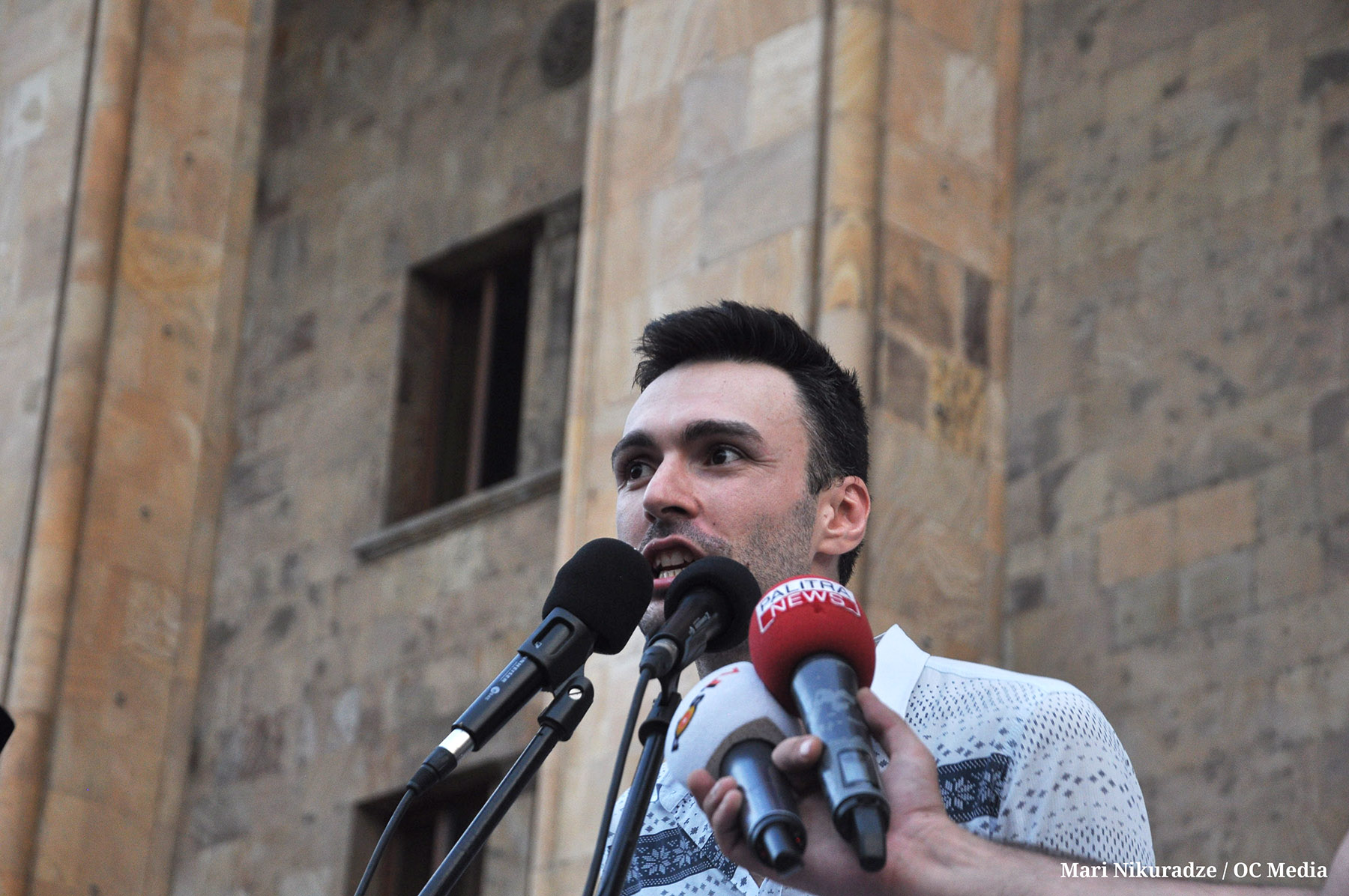
Protest leaders have said that their only remaining demand is that Interior Minister Giorgi Gakharia step down over the ‘disproportionate’ use of force by police.
Gakharia, who is also a deputy Prime Minister and chairs the State Security Council, has been dubbed by pro-government TV channel Imedi as a ‘super-premier’.
On 27 June, both Gakharia and Prime Minister Mamuka Bakhtadze held separate press briefings, fully engaging with the media for the first time since protests broke out.
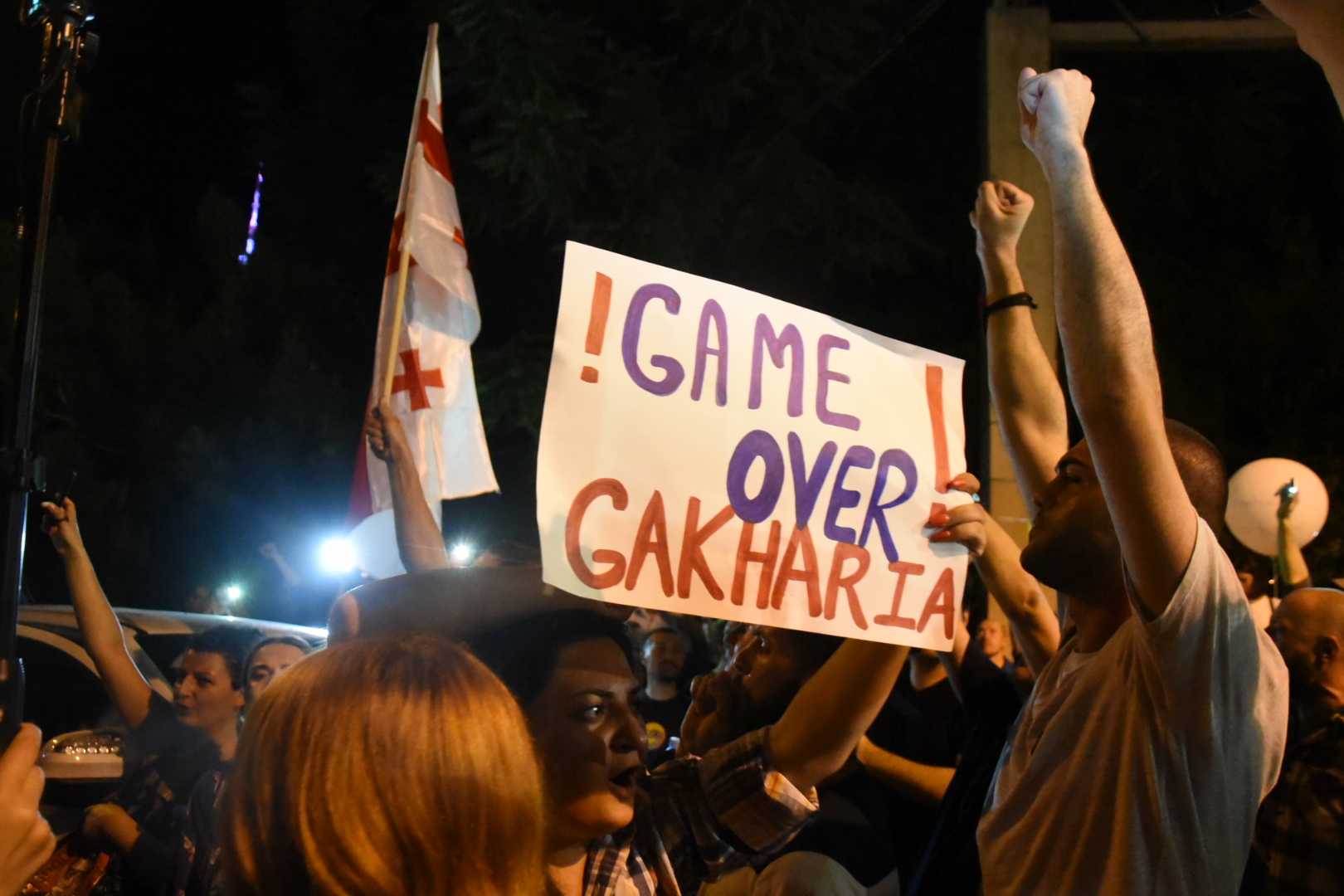
Bakhtadze blamed leaders of the formerly ruling United National Movement (UNM) Party of being ‘politically responsible’ for the violence on 20 June, rejecting the notion that the interior minister should resign over the excessive use of force by police.
He said that Gavrilov’s conduct ‘raised questions’, but did not elaborate what he meant.
A day before Bakhtadze’s press briefing, parliament stripped MP Nika Melia, one of the leaders of the UNM, of his immunity, greenlighting the Prosecutor’s Office to appeal for his pre-trial arrest while investigating him for ‘leading and participating in violence’ to storm the parliament building. Three of Georgian Dream MPs abstained from voting.
[Read more on OC Media: Opposition MP Nika Melia stripped of parliamentary immunity]
However, on 27 June, Melia was summoned to Tbilisi City Court and released on ₾30,000 ($11,000) bail, on the condition that he refrained from addressing the public with political calls or leave his residence without warning the authorities.
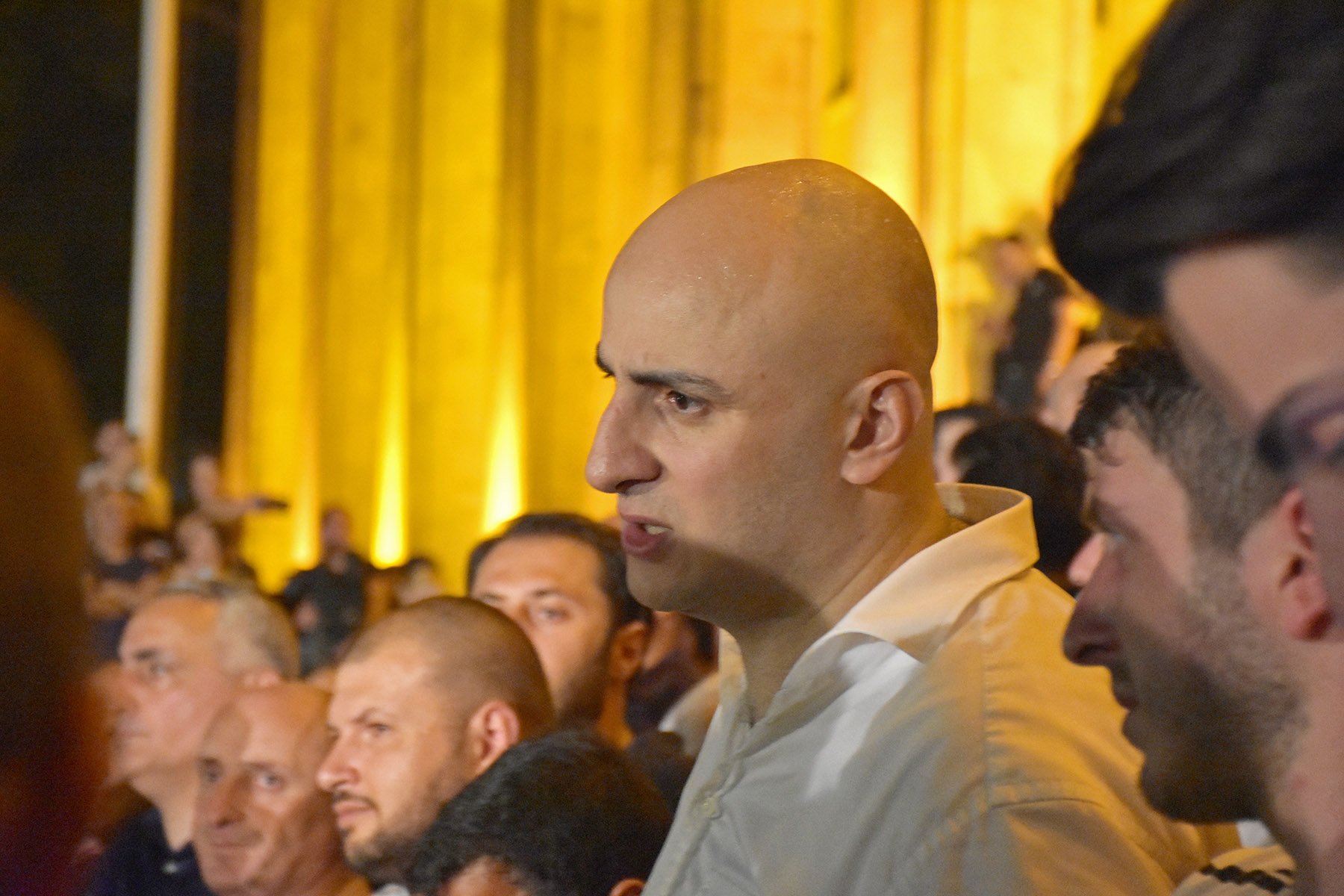
Melia, who remains an MP and said he would continue to attend parliamentary sessions, has also been banned from communicating with witnesses. Prosecutors insist he is capable of influencing witnesses, and are currently appealing against his release.
Gakharia, who sat with popular political TV show anchors on Thursday, did not rule out the Prosecutor’s Office investigating other political figures over the attempt to storm parliament. However, he also assured the public he and the Interior Ministry was not involved in the investigation.
Former Georgian Defense Minister Irakli Okruashvili and Gigi Ugulava, one of the leaders of the European Georgia Party are currently being treated as witnesses by the state prosecution. Both have vigorously denied any intention to incite violence on 20 June, and accused law enforcement agencies and Georgia’s political leadership of mishandling the situation.
In his conversation with journalists, Gakharia denied allegations that the rubber bullets that police used on 20 June were lethal.
He refused to explicitly admit that police acted on his direct orders, but insisted he was responsible for ‘everything that happened’ that night. He added that he would not step down as long as ‘some of the media’ was engaged in a ‘witch-hunt’ against police officers, and until an official investigation into the possible abuse of power by police concluded.
The reaction in Abkhazia
On 28 June, Abkhazia’s State Security Service said they had closed the Enguri (Ingur) checkpoint between Abkhazia and Georgia’s Samegrelo Region, citing ongoing ‘provocative demonstrations’ in Tbilisi.
Russia made a similar move on 21 June, with President Vladimir Putin announcing that flights by Russian airlines to Georgia would be suspended as of 8 July, and urging tour operators to pull out of Georgia. Russia’s consumer safety watchdog, Rospotrebnadzor, also announced they had again ‘discovered’ quality issues with Georgian wine.
Throughout recent days, state-controlled Russian media has described the protests in Tbilisi as ‘Russophobic’. Abkhazian President Raul Khadzhimba urged protesters in Tbilisi to stop labelling Russia’s presence in Abkhazia an ‘occupation’.
On 20 June, European Georgia MP Akaki Bobokhidze shouted ‘I killed you in Abkhazia and will kill more’ at a member of the Russian delegation in parliament, triggering Abkhazian lawmakers to demand he be criminally prosecuted and the ‘border with Georgia’ be closed. Bobokhidze later clarified he meant he had killed Russians.
Georgian Minister for Reconciliation Ketevan Tsikhelashvili said they were doing ‘everything possible’ for prospective students from Abkhazia’s Gali District, who are overwhelmingly ethnic Georgians, to be able to sit university entrance exams that start in July.





